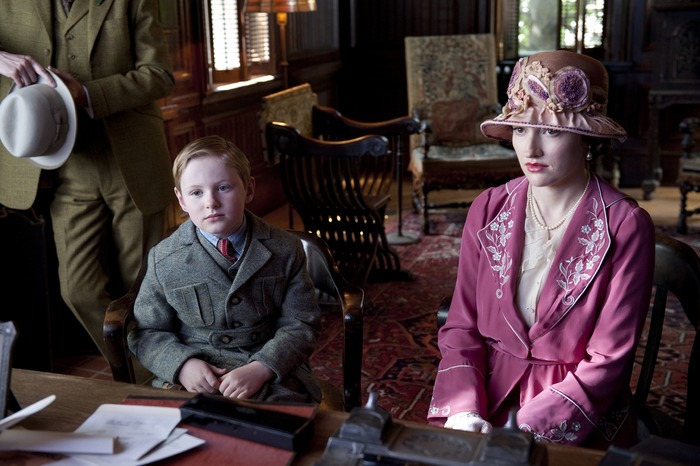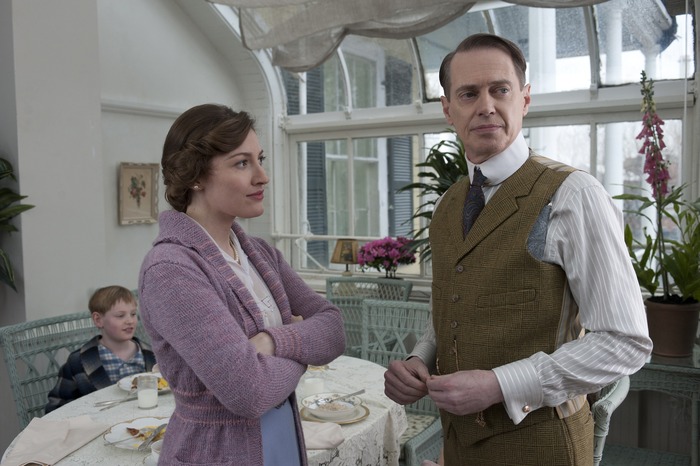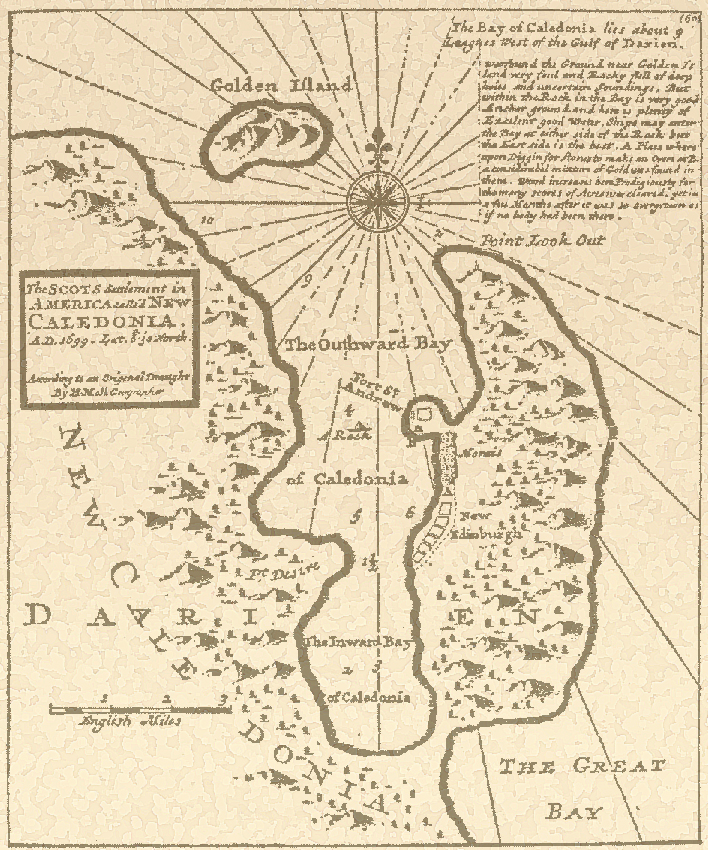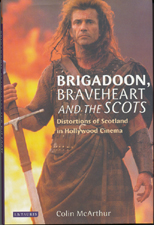|
Kelly Macdonald by Tom Doran
Kelly Macdonald , the extraordinarily talented actress who has appeared in a variety of well known films, was born in Glasgow Feb 23th 1976. With one TV film behind her (Flowers of the Forest), she made a spectacular feature film debut at 20 playing Diane, Renton's (Ewan MacGregor) girlfriend in the independently produced Trainspotting, a film many hail as the renaissance of British films. She has since appeared in a number of famous films. In 2001, Ms. Macdonald appeared in a leading role as Mary Macreachran in the period mystery film, Gosford Park directed by the well known director Robert Altman. Three years later she appeared in the semi-biographical film about Scottish writer James M. Barrie (Johnny Depp), Finding Neverland, in which she plays Barrie's most memorable creation, Peter Pan. As Carla Jean Moss in the award winning No Country for Old Men she produced a fine southern accent and garnered a good deal of attention for her performance. More recently, she appeared in the massively successful Harry Potter series as Helena Ravenclaw (the ghost of Ravenclaw House) in the final film Harry Potter and The Deathly Hallows Part 2. She replaced actress Nina Young who had portrayed the character in Deathly Hallows Part 1. Kelly can currently can be seen as Irish immigrant Margaret Schroeder, the mistress of Atlantic City's premiere boot-legging gangster, Enoch "Nucky" Thompson, on HBO's award winning Boardwalk Empire, starring Steve Buscemi.
The series is based on the non-fiction book of the same name by author Nelson Johnson, and while based on real characters and events, Ms. Macdonald 's Margaret is entirely fictional. Her Irish accent is flawless. There's a lot of depth behind the eyes of the character that Kelly brings to the part. You can see her thinking, and not for a moment does she betray a modern sensibility in her performance. She seems to be a product of the era the character inhabits - the turbulent 1920's. Her ability to capture the right sense of time and place is obvious in her period piece films (Gosford Park, Finding Neverland, Boardwalk Empire) and produce a variety of accents makes her an outstanding performer. In fact her vocal talents will be on display in the upcoming Disney-Pixar animated feature film Brave. She voices the lead character of Princess Merida in a story set in a mythical Scotland of centuries past. In addition to Brave, Kelly will also appear next year in Joe Wright's Anna Karenina (Focus Features, 2012) with Jude Law, Keira Knightley and Aaron Johnson. It is small wonder that Ms. Macdonald has been the recipient of numerous prestigious awards from many organizations including Broadcast Film Critics Association, an Emmy, Florida Film Critics Circle, a Satellite Awards, London Critics Circle, and the Screen Actors Guild. A list of her awards and nominations can be found at http://www.imdb.com/name/nm0531808/awards. In 2003, Ms. Macdonald , married another Glaswegian, musician Dougie Payne, and in 2008 the couple had a son, Freddie Peter Payne, on March 9, 2008. 
Kelly Macdonald shown here with her "Boardwalk Empire" son (Rory McTigue) Photo by Macall B. Polay / HBO Thanks to Tobe Becker Vice President, Media Relations HBO and publicist Craig Bankey for their help.
BOOK REVIEW
In recent years it has become more common to find film analysts and film historians looking at "the other" - that is the people in the film who are "different" from the film makers themselves. There have been analysis of depiction of a variety of ethnic minorities such as American Indians (Native Americans if you prefer) and Arabs for example, women, gay, lesbian and transgendered people and many others. Interestingly there has been little written on the depiction of Americans in the films of other cultures. So it comes as no great surprise that someone would finally write something about the depiction of Scots in American films. While McArthur's book is hardly a survey of all American films about Scots, it takes on two of the most popular films that have been done Brigadoon and Braveheart. Both of these films were immensely popular and like Harry Lauder in his day shaped something of the image of Scots around the world. The book is well written and interesting. It is cast in a post modern theoretical form which can be and has been criticized by different authors. Like many analysis of art forms, the author's biases towards the subject matter as well as the impact of the art form on society in general become apparent. In some cases these analysis tell us more about the author's likes and dislikes and political positions more than the works they are analyzing. None the less, one of the important things about the approach is that each reviewer sheds a different light on the work at hand and as a result one may begin to see things in a work that had not been noticed before. Brigadoon, Braveheart and the Scots: Distortions of Scotland in Hollywood Cinema is such a work, and whether you agree or disagree with the author's politics and aesthetics, the book will certainly bring to light many things about two films which clearly have had an impact on the way that people both in Scotland and outside Scotland regard the country and its history . These two films (no surprise) are Brigadoon and Braveheart. The two films differ in that Brigadoon makes no pretense of being an actual historical event while Braveheart does . But as McArthur points out, it is not the historical aspects of the story alone that one can criticize. Even the filmed version of Brigadoon has historical inaccuracies. By setting itself in 1954 (the year the film opened) the year of the "miracle", which froze the town in time, would have been 1757 - a time when tartans and kilt wearing had been outlawed. Braveheart, by presenting itself as a story involving real people, in real events can be criticized heavily for its historical inaccuracies. And in fact McArthur does so going one step beyond. In his chapter "Braveheart's Historical Distortions" he lists from p 187-190 a partial list of the historical inaccuracies in the film, but "reveals" the reasons for the inaccuracies. To do this, McArthur establishes a Scottish Discursive Unconcious (SDU) - a construct of Scotland which McArthur defines as having at its core "ensemble of images and stories about Scotland as a highland landscape of lochs, mists and castles inhabited by a fey maidens and kilted men who may be both warlike and sensitive - which serves internationally to signify "Scottishness". McArthur is concerned that this image has impacted the Scots themselves and that its appearance in Braveheart "is having the most immediate and dramatic effects on post-devolution Scotland. It has already inflamed the resentment of anti immigration groups such as the Scottish Watch and Settler Watch and seems (a properly mounted sociological study is urgently needed) to be having unpleasant effects on some young Scottish men, particularly in the way they relate to English people. On the other hand, Braveheart seems to have generated a renewed interest in Scottish history and brought additional tourists to Scotland. The social costs and benefits of Braveheart need to be soberly assessed." (p6) The book is well worth reading - even if some Scottish Americans may cringe when they read "The Scots inability to make good object choices in relation to the American South continues to be embarrassingly revealed. The ridiculous Tartan Day (McArthur 1998:13) was shepherded through Congress by none other than Trent Lott... [who] was revealed as a closet racist" (p201). It raises many interesting questions about the nature of the stereotypic depiction of a people and the impact it has on the way the world perceives them and the way they may come to see themselves. Ah - Wad some power......
|


